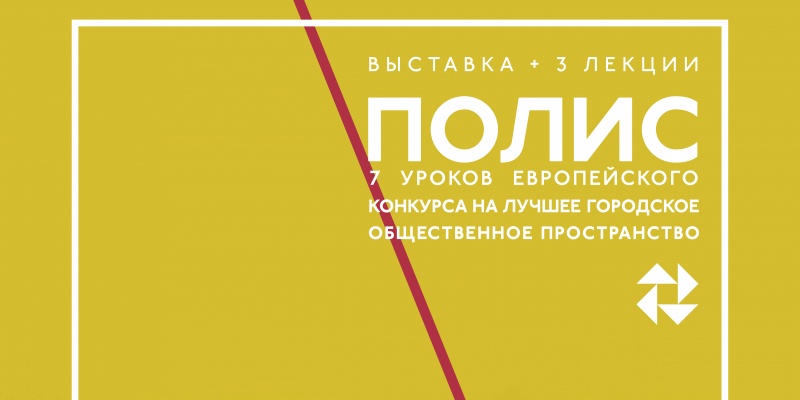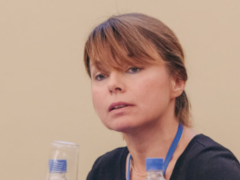The retrospective exhibition of the Prize, “Polis: 7 lessons of European Prize for Urban Public Space (2000- 2014)”, opened its doors to the public of Saint Petersburg. The exhibition will take place at The New Stage until 29 May of 2016.
The exhibition “Polis: 7 lessons of European Prize for Urban Public Space (2000- 2014)” will be open to the public of Saint Petersburg from 28 April until 29 May . The exhibition will take place at The New Stage, an extension of the Aleksandrinky Theater which represents one of the principal stages of the Russian cultural life. Located in the city centre, between the Otrovsky Square and the Fontaka river, the Theatre’s main new building opened its doors in 2013, with the aim of becoming a performance space and a multi-media centre. The exhibition was conjointly organized by the Centre of Contemporary Culture of Barcelona (CCCB) and the European University of Saint Petersburg (EUSP). Drawing from the experience of the European Prize for Urban Public Space, and imbued with a strong European spirit, the EUSP seeks to introduce examples of good practices in the emerging debate about the necessary revitalization of public spaces in the Russian city. The increasing necessity and commitment of the city to improve its public spaces is clearly reflected on the recently announced municipal policy that gives support to bottom-up initiatives seeking to improve its streets, squares, waterfronts and parks. This ambitious initiative is particularly directed towards residents associations and activists, representing a leading experience of participatory planning logic in the urban Russian context. Many of the works assembled in the exhibition “Polis” can offer inspiring examples of participatory initiative with few resources.
The exhibition of Saint Petersburg is the second edition of a selection that was already presented in 2014 in the Center for Architecture of New York. On this occasion, the exhibition consists of 28 works that have been selected among the finalists of the past eight editions of the Prize. The works are grouped around six categories which represent the biggest challenges that European cities are facing today: “Memory”, “Mobility”, “Mixture”, “Waterfronts”, “Edges” and “Democracy”.
“Polis” is included in the series “The Ideal City”, consisting of conferences and thematic events closely related to the topics presented by the exhibition. Organized by The New Stage, the series intends to trigger public debates on the building of more democratic and sustainable cities. The events series also aims at promoting the engagement with various publics, subscribing to the idea that decisions about the future of our cities ought not remain in the domain of professionals and bureaucrats only. Polis is precisely this kind of event, envisioned both as a door to new urban architectural practice and a bridge to a more citizen-driven, participatory, and engaged urbanity.
Olga Sezneva




